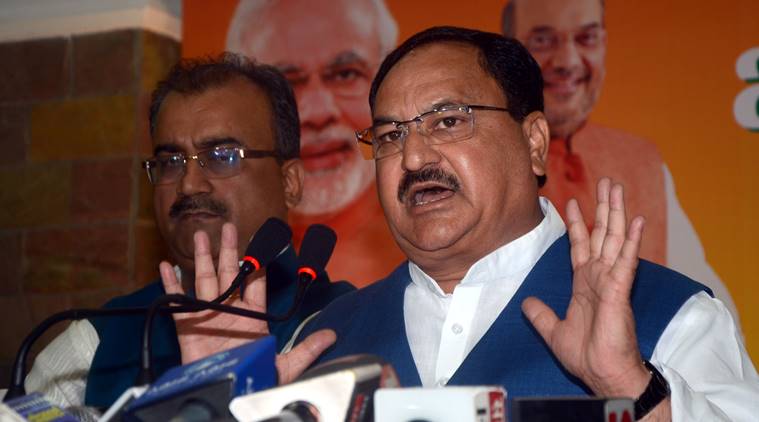 All states except Chhattisgarh and the Union Territory Dadra and Nagar Haveli have eliminated leprosy. In March 2016, 551 of the 669 districts in the country had a prevalence of less than one per 100,000 population which is defined by WHO as elimination. (Express Photo by Pradeep Kumar)
All states except Chhattisgarh and the Union Territory Dadra and Nagar Haveli have eliminated leprosy. In March 2016, 551 of the 669 districts in the country had a prevalence of less than one per 100,000 population which is defined by WHO as elimination. (Express Photo by Pradeep Kumar)
Health Minister J P Nadda on Monday announced that India is all set to start universal screening for tuberculosis and leprosy. The announcement was made by the minister while listing the achievements of the NDA government in the last four years. “We are starting universal screening. At the age of 30 years, everyone will have to be screened not just for diabetes, hypertension and cancers, but also for tuberculosis and leprosy,” Nadda said.
India accounts for the largest number of TB cases in the world and 60 per cent of the global burden of leprosy. At 27.9 lakh, India’s TB incidence in 2016 was down marginally from the previous year’s 28.4 lakh. The number of TB-related deaths was 4.35 lakh, down by 15 per cent from 5.17 lakh.
Prime minister Narendra Modi has made a suo motu commitment that India will eliminate TB by 2025, ahead of the global sustainable development (SDG) deadline of 2030.
All states except Chhattisgarh and the Union Territory Dadra and Nagar Haveli have eliminated leprosy. In March 2016, 551 of the 669 districts in the country had a prevalence of less than one per 100,000 population which is defined by WHO as elimination.
Nadda also spoke about how the latest figures for maternal mortality ratio show that three states — Tamil Nadu, Kerala and Maharashtra — have already achieved the 2030 SDG targets. He spoke about measures taken to make the new AIIMS fully functional so that the workload for Delhi AIIMS is reduced.
“There is the problem that a lot of candidates who appear for the interview are not found to be fit for the job, which means they are not up to the standards of AIIMS. AIIMS is a culture, a brand. The problem with the long delay in appointments is that when a batch passes out of AIIMS, even before their applications have been processed, they get lapped up by private hospitals. That is why the Institute Body and Governing Body of the new AIIMS have delegated the job of appointments to a Selection Committee,” the minister said.
He also spoke about Ayushman Bharat, which is planned as the health flagship programme of the NDA government. “We are moving as per the set timelines for implementing ‘Ayushman Bharat-Pradhan Mantri Rashtriya Swasthya Suraksha Mission’. We will sign MoUs with 14 states very soon,” Nadda said.